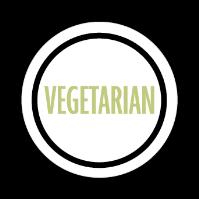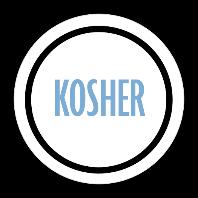

AT EMORY UNIVERSITY



Dining on Campus
Allergen Management on Campus
Your Resources
Ingredient Transparency
Specialized Solutions
Your Management
In Case of a Reaction
Halal
Navigating Other Special Diets
Meal Plan Exemptions
Contacts
For menus, café hours, and more information on food allergies, intolerances, and special diets, go to emoryatlanta.cafebonappetit.com.


At Bon Appétit, we plan café-specific menus and cook from scratch in each location. From simmering stocks to finishing sauces and roasting meats, our approach to food allows us to provide fresh foods from whole ingredients. This allows students to customize many café options to meet their personal dietary goals. We would love to hear from you and can assist you in identifying food choices or even prepare meals tailored to meet your needs.
We take food allergies seriously. Our menu items are prepared from scratch in our kitchens each day using the freshest, highest quality selections available seasonally and regionally. If you have food allergy or other special dietary need, our well-trained chefs and/or registered dietitians are here to assist you with menu options to meet your dietary needs. Our chefs are the best resource for real time information about products and ingredients used in a specific dish that day.
While our culinary teams receive significant training about food allergens, religious dietary requirements, and other dietary modifications, please keep in mind that our dishes are prepared in open kitchens, the foods you avoid may be present in all Bon Appétit cafés, and other students may introduce them through foods they may bring into the cafe.



Bon Appétit at Emory University safely serves many students with food allergies every day. We have clear and concise protocols that take into account our open kitchens and from-scratch cooking methods to ensure students are fed safely. We also look to the recommendations from expert professional organizations, such as Food Allergy Research & Education (FARE), to guarantee our approach remains current and reflects best practice guidelines.
Per our food allergen awareness protocol, we work to ensure that:
• Managers and hourly associates participate in food allergy and celiac disease awareness training.
• Descriptive, responsible menu nomenclature identifies the top9 allergens and gluten in naming and descriptions for house-made menu items.
• Quick reference allergen icons are available on daily café signage and online menus.
• Ingredient information available online and questions directed to chefs, managers, or our registered dietitian.
• Relationships with food allergic guests are developed to foster direct communication in line with best practices outlined in the FARE restaurant guidelines (foodallergy.org).

Bon Appétit at Emory University can help you manage your food allergy(ies).

An individual meeting with chefs and managers to help you develop an individual plan to navigating your dining options. They can also help address ongoing questions and concerns.
Introduction to the dining management team, giving you direct access to individuals responsible for food preparation.
Online menus for each dining location available at emoryatlanta.cafebonappetit.com.
Access to cold and dry food storage to review ingredients personally (with advance notice).
Fresh gloves, utensils, or pans at made-to-order stations to reduce crosscontact concerns, upon request.


Bon Appétit at Emory University communicates about the top-9 allergens and gluten using quick reference icons and descriptive menu naming.
Icons for the top-9 allergens and gluten can be found on online menus and daily café signage. Icons, recipes, and purchased products are regularly reviewed for accuracy by our culinary and wellness teams.










Online menus also list the ingredients for all house-made products. We cook from scratch using whole, seasonal ingredients, so this strategy covers the vast majority of our menu items fully. However, sub-ingredients of manufactured products (for example, mayonnaise) will not be listed online. Package labels with sub-ingredients are available in the café upon request for guests to view at any time. This allows us to provide guests with the most up-to-date information in real time.
We also ensure that the name of the dish, or its restaurant-style description references any cooking methods which may increase the risk of crosscontact, such as frying. This provides students with much of the information they need while also letting them know when they may need to ask further questions.


Dobbs Common Table offers a station dedicated to providing meals made without glutencontaining ingredients. The Avoiding Gluten station provides menu choices prepared with ingredients that are naturally without gluten-containing ingredients or alternatives to traditional gluten-containing options. At this station, food is prepared by a trained culinarian, in a designated area of the kitchen, and following specific procedures to minimize risk of cross-contact.

Bon Appétit is committed to creating food in a socially responsible manner for the well-being of our guests, communities, and the environment.
At Dobbs Common Table, we do not use peanuts, tree nuts, or shellfish as ingredients in the preparation of the menu items. However, products may change without our knowledge and peanuts, tree nuts, and shellfish may be used as ingredients in the preparation of menu items and GO offerings in other cafés across campus.
We cannot guarantee these allergens have not been introduced during a previous stage of the food preparation process or accidental cross-contact from outside sources. Guests with food allergies or specific dietary concerns should speak with a manager for individualized assistance.


You also have a responsibility for communicating and participating in the management of your food allergy. You are strongly encouraged to:
Understand your food allergy. Recognize common sources of, and avoid, foods to which you are allergic. Know the signs and symptoms of a reaction, and carry any medication prescribed to you for food allergen management
Notify appropriate parties of your allergy(ies). You are encouraged to contact, Jamie Kalogeros, RDN, Resident Dietitian/Senior Wellness Coordinator, with Bon Appétit to discuss specific nutrition concerns.
We also request you work through the university’s accommodation process and contact:
Emory Department of Accessibility Services accessibility@emory.edu 404-727-9877
Review menu names for food allergens. Our chefs use restaurant style descriptors to indicate allergens whenever possible. Look for clues such as ‘creamy’ to call out the use of milk or ‘breaded’ to indicate something may include egg, milk, and wheat. Menus can be accessed at emoryatlanta.cafebonappetit.com.
Get to know your chefs. If you have a question at any point, please ask. Our chefs can help answer questions about ingredients in a particular food; they understand the importance of your need and work daily to keep you safe. If you do not know who these individuals are, please ask a cashier or line attendant to assist you.
Take steps to avoid cross-contact. Cross-contact occurs when a food comes into contact with another food and their proteins mix, creating the potential for accidental exposure.
• Consider making more selections from served stations.
• If choosing self-serve areas, talk to a chef or manager for the best options to reduce potential cross-contact concerns.
• Ask dining employees to change their gloves and to use a new utensil, or a fresh pan, at made-to-order stations.
• Avoid eating deep-fried foods. Frying oil is reused before being changed; this can lead to cross-contact because food fried in oil releases some of its protein, which is then absorbed by other foods in the same oil.
• At the salad bar or deli station, request produce or meat that is stored behind the counter.
Keep an open dialogue. Let our management team know what’s working, what’s not, and when in doubt – ask questions. If we do not hear from you, we believe that you are successfully navigating the dining facilities.


Recognize signs and symptoms of an allergic reaction.
• Know how and when to tell someone you might be having an allergy-related problem.
• Properly use medications.
• Carry emergency contact information with you.
• Carry any medication (e.g. auto-injector, Benadryl, etc.) with you at all times.
• Consider informing those you commonly dine with about your medical needs in case of an emergency.


FACE itching, redness, swelling
AIRWAY trouble breathing, coughing, wheezing, trouble swallowing and speaking




STOMACH pain, vomiting, diarrhea, nausea
TOTAL BODY hives, rash, weakness, paleness, sense of doom, loss of consciousness
If you or someone you know has signs of an allergic reaction, please take the following steps:
1. Get help immediately. Call Campus Emergency Services at 404-727-6111 or indicate to someone that you need them to call for help on your behalf.
2. Do not go back to your room by yourself.
3. Administer epinephrine or take an antihistamine as prescribed by your doctor.
4. Follow-up with your physician or a medical provider.
5. Notify Asia Hunter at Bon Appétit as soon as possible so they can address your concerns, begin an investigation, and help make adjustments in your eating plan if needed.
If you have been prescribed an epinephrine auto injector, you should carry it with you at all times. Please know that Bon Appétit cannot store personal medications on behalf of students and guests.


At Dobbs Common Table, menu items labeled with the Halal COR icon (HL) indicate meals that were prepared with certified Halal animal proteins and without the use of haram ingredients. Additionally, no alcohol is used in the preparation of meals, including bakery products, ensuring vegan and vegetarian options are available for Halal guests.
Finding Halal Proteins in the Café
Halal chicken is available at the Market Table salad bar during lunch and dinner. Halal lamb, beef, and chicken are served at Fire & Spice, 605 Kitchen, and at the Flatiron. Stations that are also serving pork will not identify meals as Halal during that meal period.
We follow the Monterey Bay Aquarium’s Seafood Watch Program to guide fish and seafood purchases. This helps our team purchase responsibly farmed and sustainably sourced wildcaught fish. Since we are unable to verify the exact feeding practices of farmed fish, the way the fish was raised will be identified in the plate description on the menu and guests must determine their own level of comfort when making these selections in the café. For example:
deep fried catfish cornmeal-crusted farm-raised catfish filets deep fried until golden brown
orange miso cod wild-caught Atlantic cod brushed with a citrus-soy glaze and broiled until flakey
Please note: Emory University partners with a local farm, Springer Mountain Farms, and the chicken breast served at the Luncheonette daily is not certified Halal. In addition, all beef hamburgers are certified as humanely raised and slaughtered, but they are not certified Halal.
GO Program
GO Products are available at all retail locations on campus including Rollins Café, Clairmont Café, White Hall, Banjo Café in Woodruff Library, Ms. Jeans at the Law School, and Eagle Emporium at the Student Center. Products made with Halal certified meat and without the use of haram ingredients will have “Halal” listed in the item name and the ingredients can be verified on the product label. No alcohol is used in the production of GO Products, including bakery items, ensuring vegan and vegetarian options are available for Halal guests.
Cross-Contamination Considerations
Much like the protocols in place to keep food safe for food-allergic guests, our chefs use the same measures to ensure the integrity of Halal foods. Separate utensils are used in the preparation and serving of food to prevent any potential contamination.



We believe in a holistic approach to wellness, in which purposeful menu offerings support the well-being of students, enhance performance, and inspire connection and creativity. Specific icons on the menu allow our students to make informed food choices throughout our café(s).


Contains absolutely no animal or dairy products. Every Bon Appétit location offers at least one vegan meal option at every meal period.


Contains no meat, fish, poultry, shellfish, or products derived from these sources but may contain dairy or eggs. Every Bon Appétit location offers at least two vegetarian meal options at every meal period. Dobbs Common Table boasts a dedicated vegetarian station, Stem-to-Root, which is available for breakfast, lunch, and dinner meal periods.


Contains only ingredients prepared in accordance with Jewish dietary law. Emory University offers a Kosher meal plan, Meal Plan K, which is available to first- and second-year students in addition to Kosher Meal Plan KB, available to second-year students. Certified Kosher meals are available for individuals who observe Kosher dietary practices or are enrolled in a Kosher meal plan.
Kosher meals are catered from Kosher Gourmet and are available at the dedicated Kosher Station at Dobbs Common Table for lunch and dinner Sunday-Thursday and during lunch on Friday.
Kosher GO - Kosher Gourmet also provides cold cut, tuna fish, and chicken salad sandwiches in retail cafés. During Passover, the sandwiches are served on lettuce wraps. Retail spaces will have matzah and other products available to help students observe the holiday.


Students requiring dining accommodations or seeking meal plan exemptions must submit an appeals form to Department of Accessibility Services. Appeals will be reviewed by the university and Emory Dining for approval.


Michelle Reuter - Resident District Manager michelle.reuter@cafebonappetit.com
Nicholas Walker – Director of Operations nicholas.walker@cafebonappetit.com
Jamie Kalogeros, RDN - Resident Dietitian/Senior Wellness Coordinator jamie.kalogeros@cafebonappetit.com
Dobbs Common Table
Asia Hunter – General Manager asia.hunter@cafebonappetit.com
John Flagello - Executive Chef john.flagello@cafebonappetit.com
Rollins Café
Jermarace Miller – Café Manager jermarace.miller@cafebonappetit.com
Clairmont Café
Maquita Edwards – Café Manager maquita.edwards@cafebonappetit.com
Cox Hall
Tarrace Pines – Café Manager tarrace.pines@cafebonappetit.com
